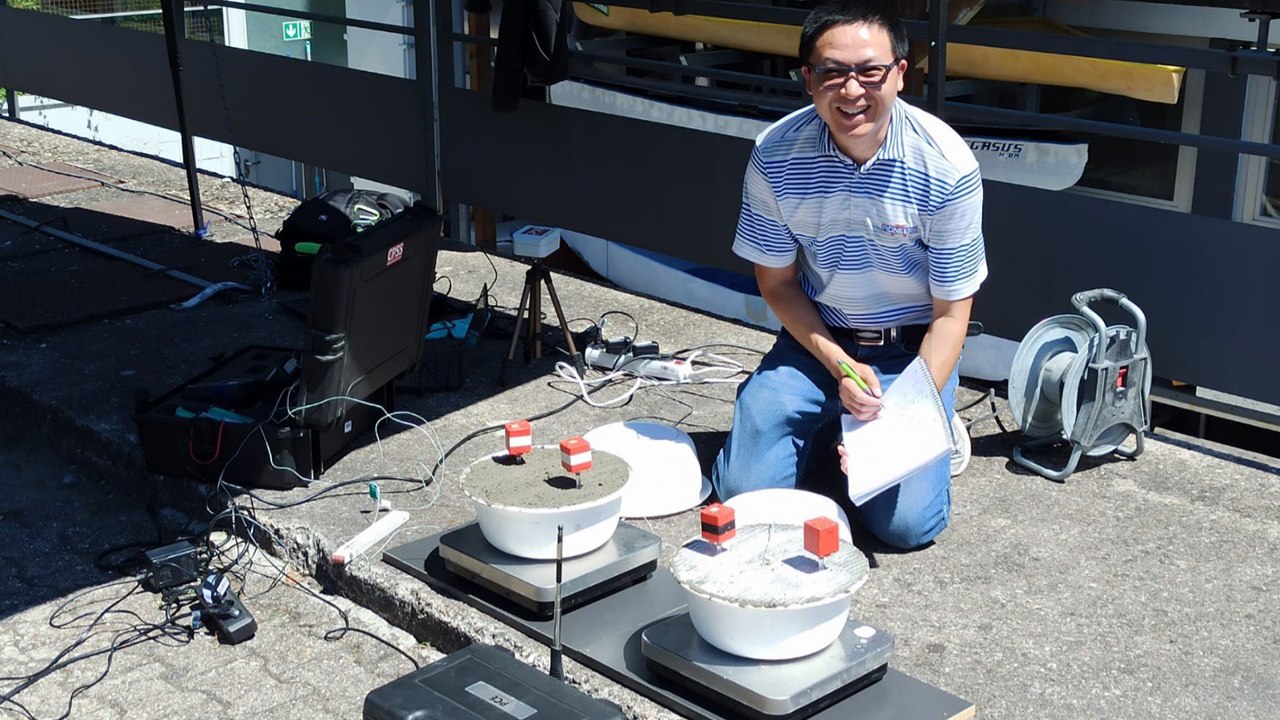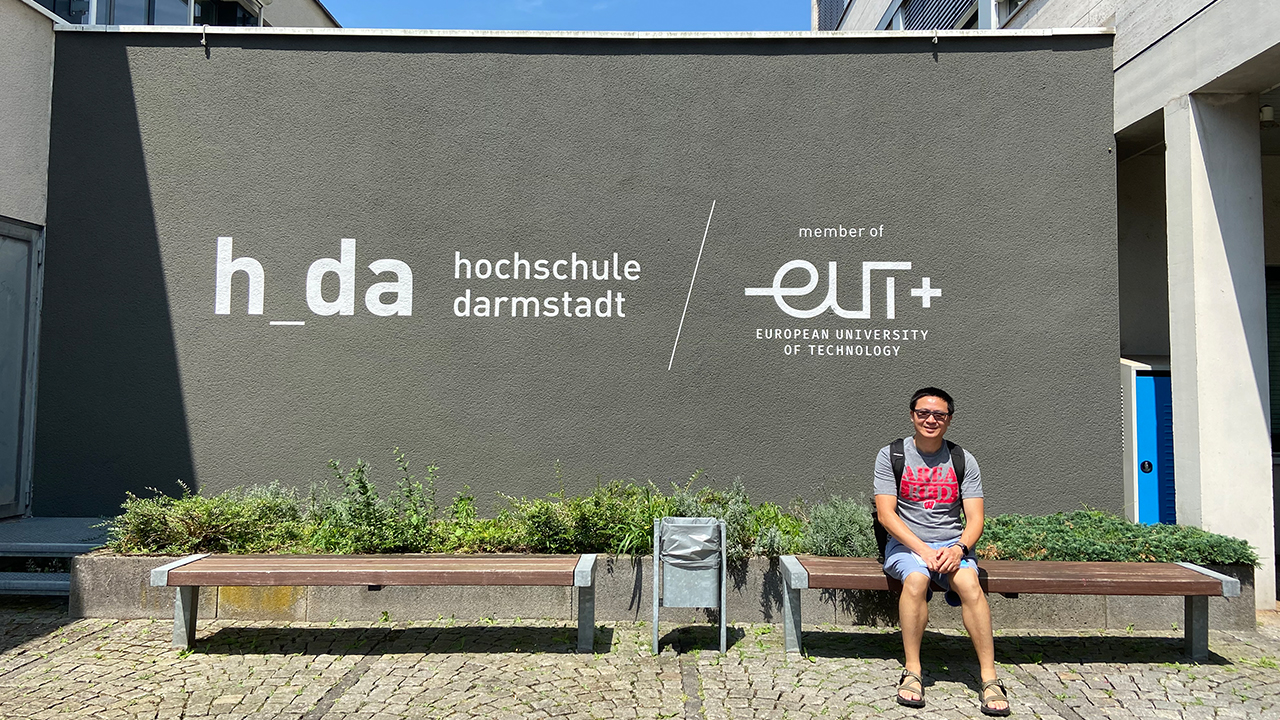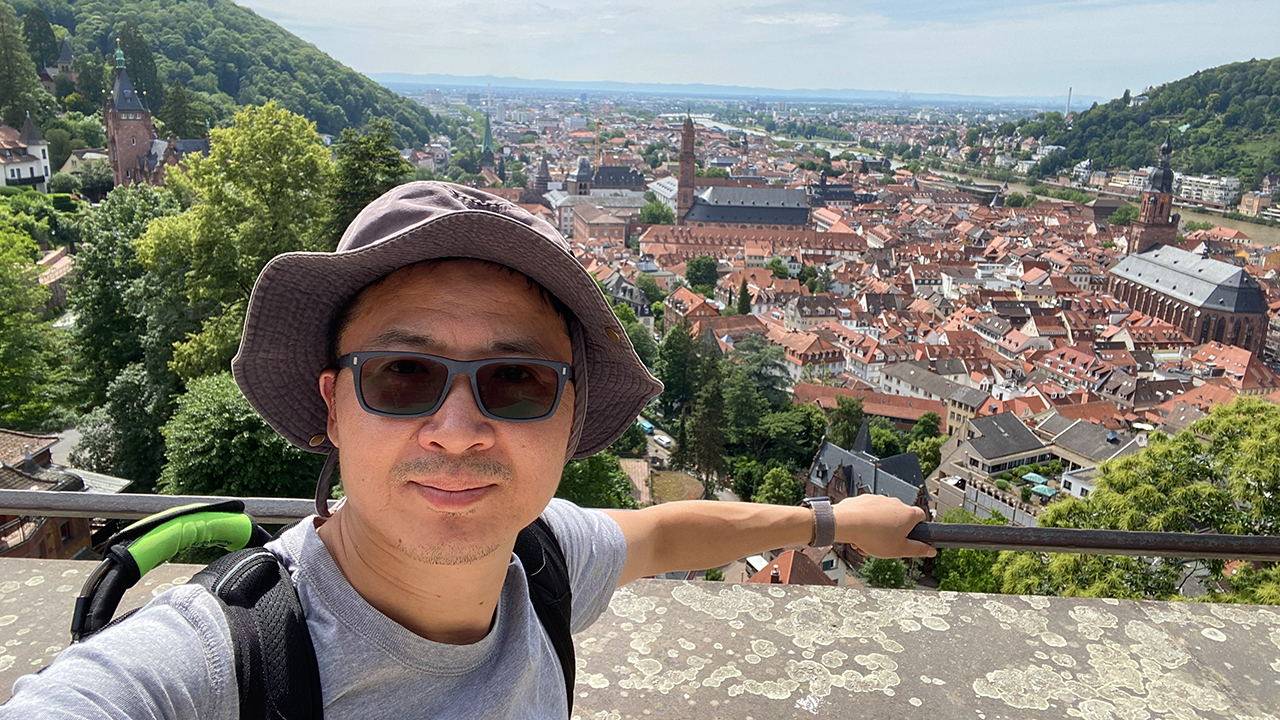




Dr. Danny Xiao, associate professor of civil and environmental engineering at the University of Wisconsin-Platteville, received the opportunity to complete his sabbatical last spring semester at Hochschule Darmstadt University of Applied Sciences, Germany. During his time in Germany, Xiao was able to sit in several courses to experience higher education in a European institute. He was also invited to give several guest lectures, group discussions with students, field trips, and exchange workshops. Working with colleagues in Germany, Xiao also conducted a research project investigating concrete curing with capillary pressure sensors.
Q: Why did you choose Germany for your sabbatical?
A: Well, first of all, I was sure I would like to see Europe, since I have lived in China and United States; Europe is right in between the two. Why Germany? That is simply because the partnership between UW-Platteville and Hochschule Darmstadt. Some may not know the Wisconsin-Hessen Program, but this program was inaugurated in 1998 to expand the long-established cooperation between the two sister states through the exchange of students.
Q: Is Germany very different from the United States?
A: There are both similarities and differences. For example, Germans love cars. That is one reason why several top car brands like Volkswagen, Mercedes-Benz, BMW, Audi, and Porsche are from Germany. As a transportation engineer, I see their highway system (Autobahn) as very similar to our interstate, except there is no speed limit on the Autobahn. I buy groceries from Aldi in U.S. and in Germany. But Aldi and almost all stores in Germany are closed on Sunday. For college, their class period is longer – 90 minutes vs. our 50 minutes. Their semester starts in April and ends in July, while ours starts in January and ends in May. But both Hochschule Darmstadt and UW-Platteville are known for student-centered, project-based hands-on education in small classrooms. Going back to transportation, train and bike were my tools in Germany, but I rely on a car in the U.S. I had the Deutschland Card, a monthly subscription, that allowed me to use all public transportation throughout Germany. So, all I needed to know was my destination and the train/tram/bus number to catch. No need to worry about turning left, turning right, and where to park.
Q: You also developed a study abroad course for students. Please tell us more about it.
A: Yes, I am very excited for this course. I always believe the power of experiencing different culture; it broadens our horizon, enriches our life, teaches us to cherish our own culture, and builds strong bonds through personal connections. I was fortunate to take one semester of German language with Professor Madelon Kohler-Busch before I went to Germany. Based on my time in Germany, Professor Kohler-Busch and I developed a short-term, faculty-led program, Castles, Cars, and Craftsmanship: History and Engineering in Germany. This course, available in summer 2025, will be offered to all students on campus, in particular to freshman and sophomore students who are curious about the world and the fame of German engineering. The trip will visit historical castles, modern architecture, renowned manufacture plants, and hands-on projects at Hochschule Darmstadt. A focal point is how engineering shaped such changes along the way. If any students are interested in this course, please join our information session on Oct. 15, 5-6 p.m. in Sesquicentennial Hall, Room 350. More information about this course is available online.